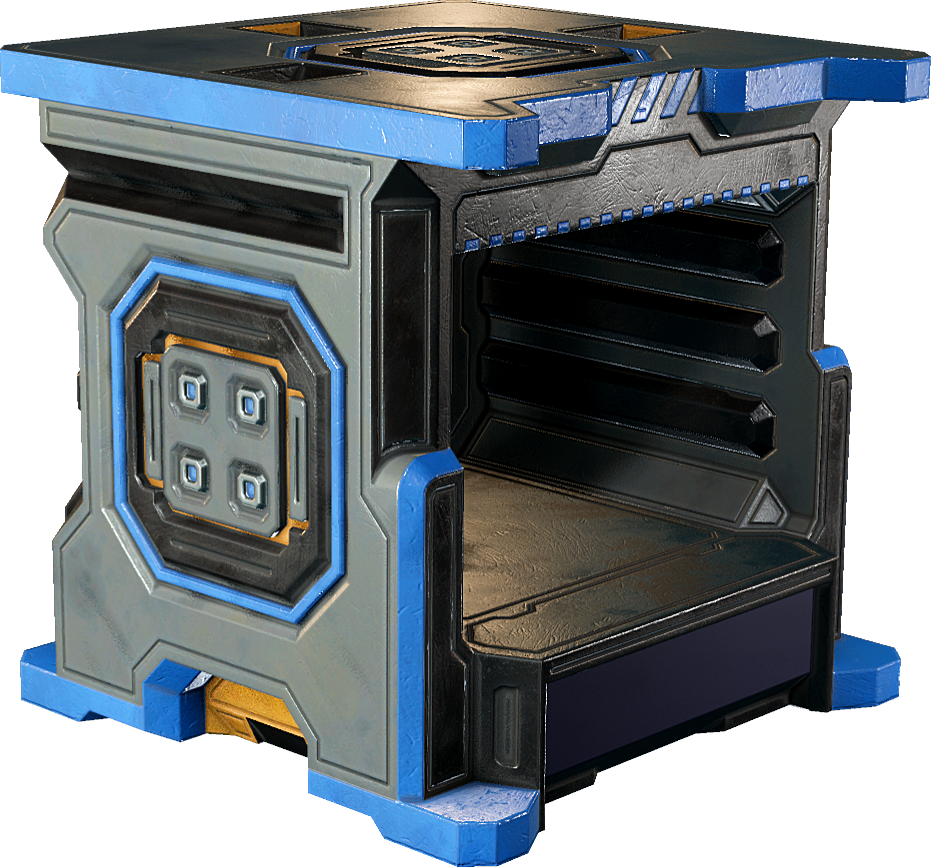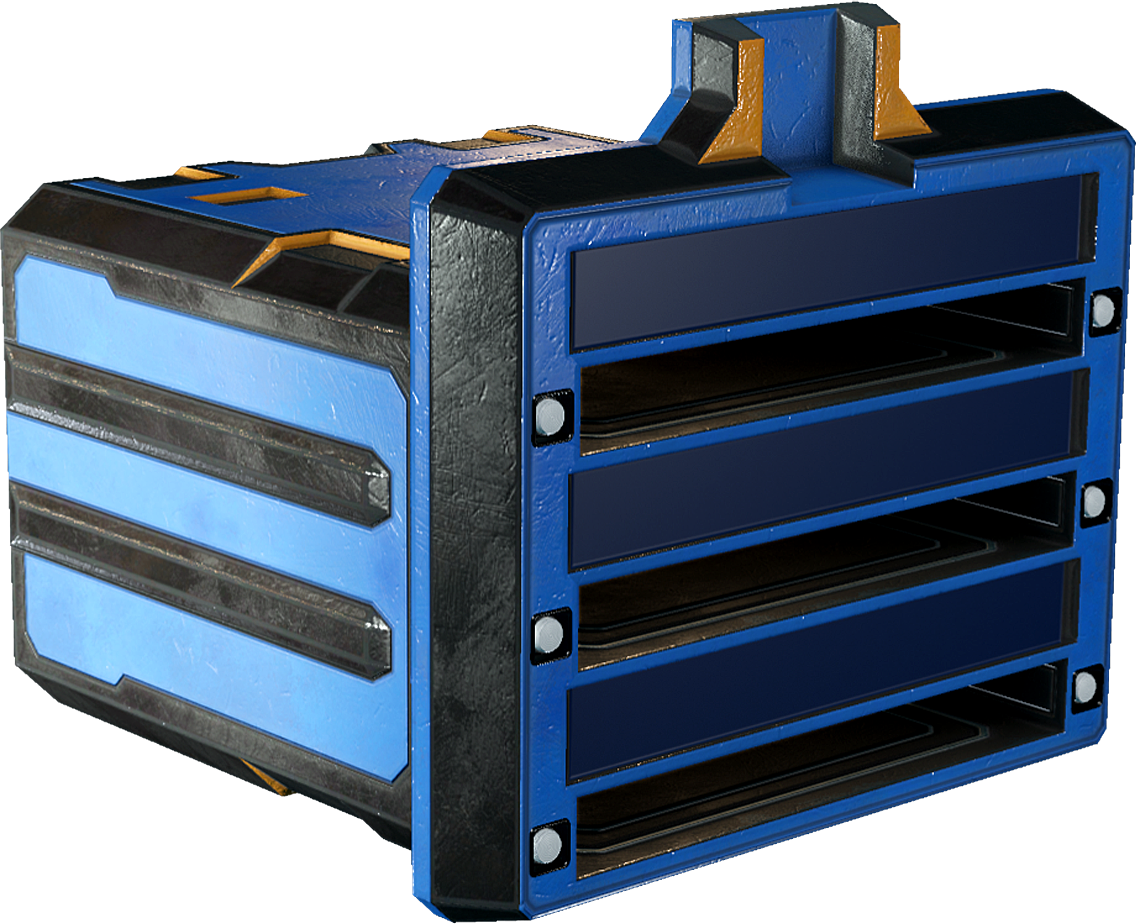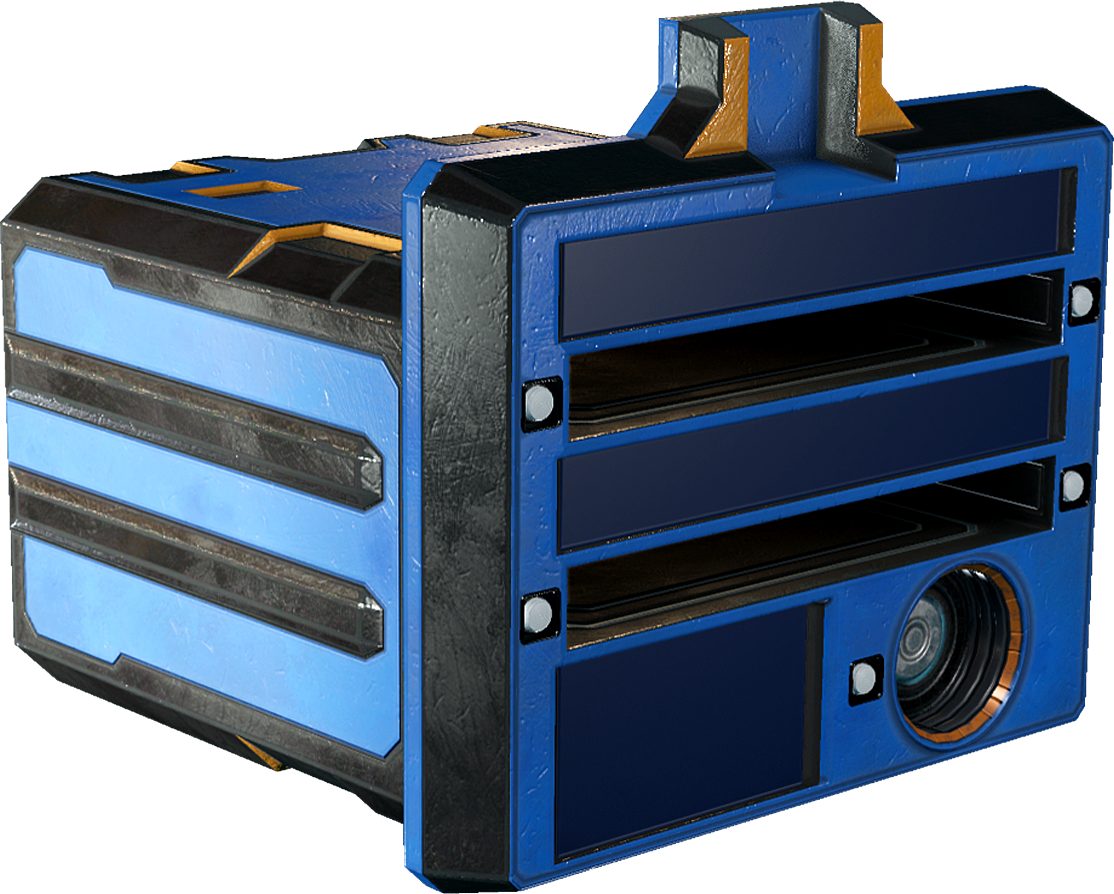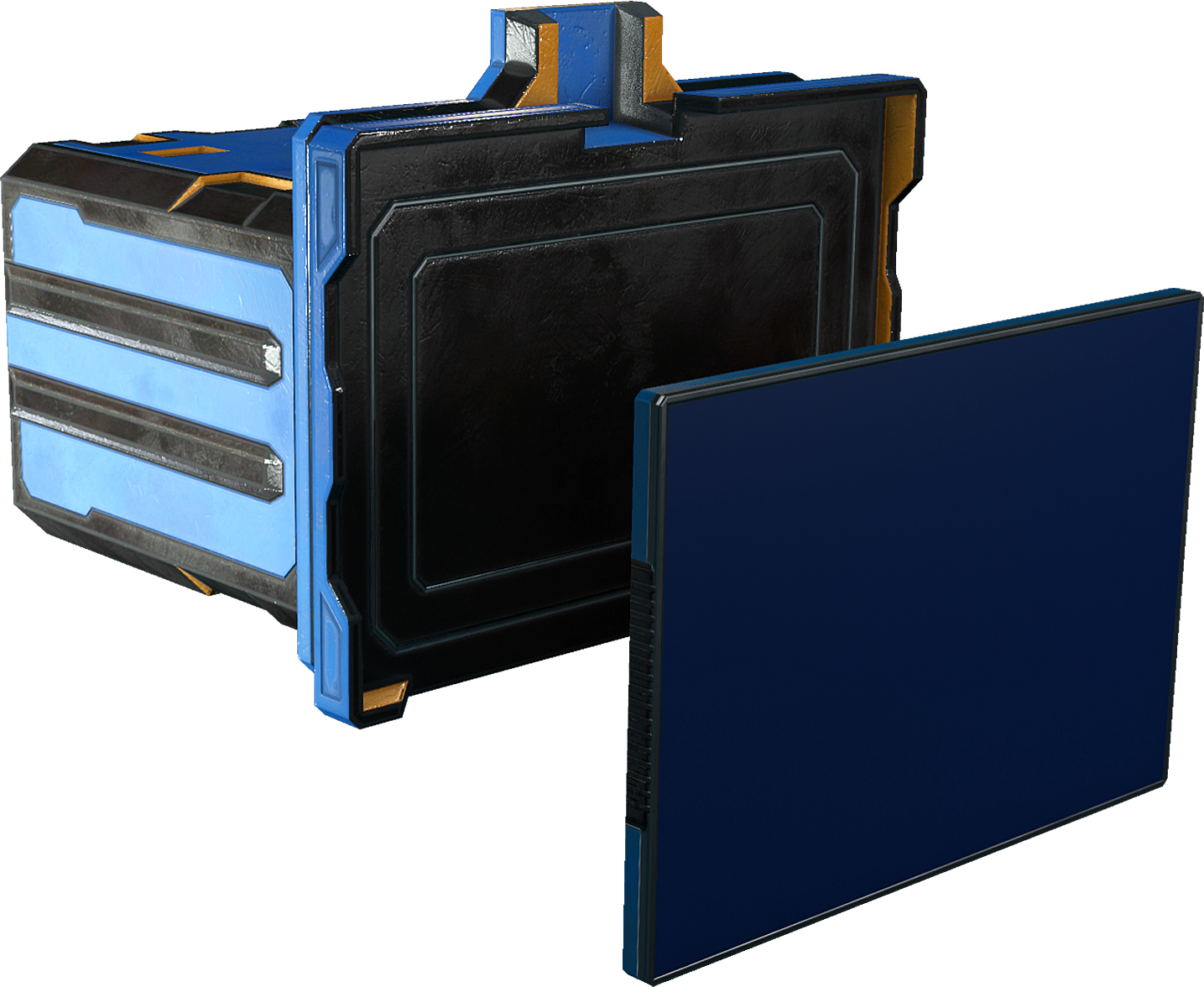Difference between revisions of "Modular device rack"
m |
|||
| (12 intermediate revisions by 3 users not shown) | |||
| Line 1: | Line 1: | ||
{{ | {{SB Infobox Begin | ||
| | |{{SB Infobox Header | ||
| | |image=[[Image:Module rack base.png]] | ||
| | |factionLogo= | ||
| | |caption= | ||
| | |name=YOLOL rack | ||
| | |border=none | ||
}} | }} | ||
== | |||
< | |{{SB Infobox Device General Information | ||
|type=YOLOL device | |||
|function=Houses modular YOLOL readers | |||
|size=48×48×48 cm | |||
|mass=629.74 | |||
|volume=63.29 | |||
|corrosionResistance=450 | |||
|primaryMaterial=Bastium | |||
|suppressUnitsKg | |||
|suppressUnitsKv | |||
|subComponents= | |||
}} | |||
|{{SB Infobox Device IO | |||
|electricIn= | |||
|electricOut= | |||
|energyCapacity= | |||
|coolantIn= | |||
|coolantOut= | |||
|coolantCapacity= | |||
|coolantRefresh= | |||
|heatGeneration= | |||
|heatDissipation | |||
|propellantIn= | |||
|propellantOut= | |||
|propellantCapacity | |||
|fuelIn= | |||
|fuelOut= | |||
|fuelCapacity | |||
|sockets= | |||
|YOLOLchips= | |||
|modInterfaces=5 | |||
|deviceInterfaces= | |||
|enhancement= | |||
}} | |||
|{{SB Infobox Device Construction | |||
|headerOverride= | |||
|aegisium= | |||
|ajatite=40% | |||
|arkanium= | |||
|bastium=25% | |||
|charodium= | |||
|corazium= | |||
|exorium= | |||
|haderite= | |||
|ice= | |||
|ilmatrium= | |||
|karnite= | |||
|kutonium= | |||
|lukium= | |||
|merkerium= | |||
|nhurgite= | |||
|oninum= | |||
|surtrite= | |||
|tengium= | |||
|ukonium= | |||
|valkite= | |||
|vokarium=35% | |||
|xhalium= | |||
}} | |||
}}<section begin=summary/>The YOLOL rack is the base device for any modular device rack. It does nothing on its own, except join the data network of adjacent racks. All the [[#Modules|modules]] plug into a rack to provide actual functionality for a rack. It can connect to any rack adjacent to it from any side except the front and will form one [[Data networks|network]] with those devices, which is a nice alternative to wiring each chip when using [[YOLOL chip socket|chip sockets]]. The [[#Socket_Core|socket core]] module provides a [[Cable tool|cable]] socket to connect a set of device racks to another network. <section end=summary/> | |||
== Modules == | |||
There are three modules that can be plugged into the slot on the front of a rack: | |||
{{SB Mini Infobox Wrap | |||
|{{SB Mini Infobox Begin | |||
[[ | |{{SB Infobox Header | ||
|image=[[Image:Module chip core.png]] | |||
|name=Chip core | |||
}} | |||
|{{SB Infobox Device General Information | |||
|mass=316.6 | |||
|volume=31.82 | |||
|corrosionResistance=430 | |||
|primaryMaterial=Bastium | |||
}} | |||
|{{SB Infobox Device IO | |||
|sockets=0 | |||
|YOLOLchips=3 | |||
}} | |||
== | |{{SB Infobox Device Construction | ||
|ajatite=25% | |||
|bastium=35% | |||
|vokarium=40% | |||
}} | |||
}} | |||
|{{SB Mini Infobox Begin | |||
|{{SB Infobox Header | |||
|image=[[Image:Module socket core.png]] | |||
|name=Socket core | |||
}} | |||
|{{SB Infobox Device General Information | |||
|mass=347.5 | |||
|volume=34.92 | |||
|corrosionResistance=430 | |||
|primaryMaterial=Bastium | |||
}} | |||
|{{SB Infobox Device IO | |||
|sockets=1 | |||
|YOLOLchips=2 | |||
}} | |||
|{{SB Infobox Device Construction | |||
|bastium=35% | |||
|vokarium=50% | |||
|ajatite=15% | |||
}} | |||
}} | |||
|{{SB Mini Infobox Begin | |||
|{{SB Infobox Header | |||
|image=[[Image:Module chip reader.png]] | |||
|name=Chip Reader | |||
}} | |||
=== | |{{SB Infobox Device General Information | ||
|mass=384.4 | |||
|volume=38.63 | |||
|corrosionResistance=430 | |||
|primaryMaterial=Bastium | |||
}} | |||
|{{SB Infobox Device IO | |||
|sockets=0 | |||
|YOLOLchips=1 | |||
}} | |||
=== | |{{SB Infobox Device Construction | ||
|bastium=35% | |||
|ajatite=20% | |||
|vokarium=45% | |||
}} | |||
}} | |||
}} | |||
* '''[[#Chip Core|Chip Core]]''': Basic module with three chip slots | |||
* '''[[#Socket Core|Socket Core]]''': Module with two chip slots, and a cable socket to connect the rack network to an external network | |||
* '''[[#Chip Reader|Chip Reader]]''': Alternate chip module for one chip in a configuration that allows editing and monitoring | |||
[[ | |||
The modular attachment points on the sides of the device rack can also interact with [[Memory relay|memory relays]], both as a means of including those into their network and to exploit the sockets on the relays in order to power the device rack in the event that a Socket Core is not installed. | |||
== Device fields == | == Device fields == | ||
Latest revision as of 14:56, 17 March 2022
The YOLOL rack is the base device for any modular device rack. It does nothing on its own, except join the data network of adjacent racks. All the modules plug into a rack to provide actual functionality for a rack. It can connect to any rack adjacent to it from any side except the front and will form one network with those devices, which is a nice alternative to wiring each chip when using chip sockets. The socket core module provides a cable socket to connect a set of device racks to another network.
Modules
There are three modules that can be plugged into the slot on the front of a rack:
- Chip Core: Basic module with three chip slots
- Socket Core: Module with two chip slots, and a cable socket to connect the rack network to an external network
- Chip Reader: Alternate chip module for one chip in a configuration that allows editing and monitoring
The modular attachment points on the sides of the device rack can also interact with memory relays, both as a means of including those into their network and to exploit the sockets on the relays in order to power the device rack in the event that a Socket Core is not installed.
Device fields
To learn more about how to use fields, consult these wiki pages:
| YOLOL field | description | range |
|---|---|---|
| CurrentState | ||
| OnState | ||
| OffState | ||
| ButtonStyle |



